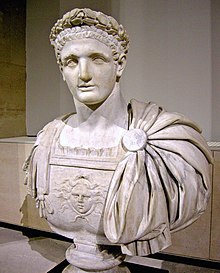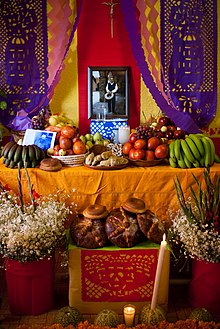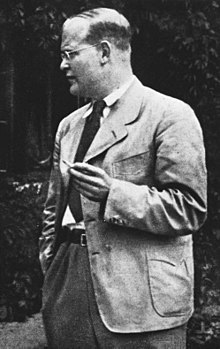Portal:Religion
The Religion Portal
Religion is a range of social-cultural systems, including designated behaviors and practices, morals, beliefs, worldviews, texts, sanctified places, prophecies, ethics, or organizations, that generally relate humanity to supernatural, transcendental, and spiritual elements—although there is no scholarly consensus over what precisely constitutes a religion. Different religions may or may not contain various elements ranging from the divine, sacredness, faith, and a supernatural being or beings. (Full article...)
 Vital article
Vital article
Jainism (/ˈdʒeɪnɪzəm/ JAY-niz-əm), also known as Jain Dharma, is an Indian religion. Jainism traces its spiritual ideas and history through the succession of twenty-four tirthankaras (supreme preachers of Dharma), with the first in the current time cycle being Rishabhadeva, whom the tradition holds to have lived millions of years ago, the twenty-third tirthankara Parshvanatha, whom historians date to the 9th century BCE, and the twenty-fourth tirthankara Mahavira, around 600 BCE. Jainism is considered an eternal dharma with the tirthankaras guiding every time cycle of the cosmology. Central to understanding Jain philosophy is the concept of bhedvigyān, or the clear distinction in the nature of the soul and non-soul entities. This principle underscores the innate purity and potential for liberation within every soul, distinct from the physical and mental elements that bind it to the cycle of birth and rebirth. Recognizing and internalizing this separation is essential for spiritual progress and the attainment of samyak darshan or self realization, which marks the beginning of the aspirant's journey towards liberation. The three main pillars of Jainism are ahiṃsā (non-violence), anekāntavāda (non-absolutism), and aparigraha (asceticism). (Full article...)
 Did you know (auto-generated)
Did you know (auto-generated)
- ... that Musa va 'Uj depicts figures from all three Abrahamic religions?
- ... that Gamaliel's principle has been used to support religious pluralism and reforms within religious groups?
- ... that the Grave with the Hands commemorates a married couple, divided by society and religion, with hands clasped over a cemetery wall after death?
- ... that the author of the comic book Timeless Voyage was the leader of a UFO religion?
- ... that the capital of South Ossetia once had more Jews than Ossetians?
- ... that Catherine de Parthenay, a 16th-century Huguenot leader, was a member of "a highly successful network of information" during the French Wars of Religion?
Domitian (/dəˈmɪʃən, -iən/, də-MISH-ən, -ee-ən; Latin: Domitianus; 24 October 51 – 18 September 96) was Roman emperor from 81 to 96. The son of Vespasian and the younger brother of Titus, his two predecessors on the throne, he was the last member of the Flavian dynasty. Described as "a ruthless but efficient autocrat", his authoritarian style of ruling put him at sharp odds with the Senate, whose powers he drastically curtailed. (Full article...)




































































